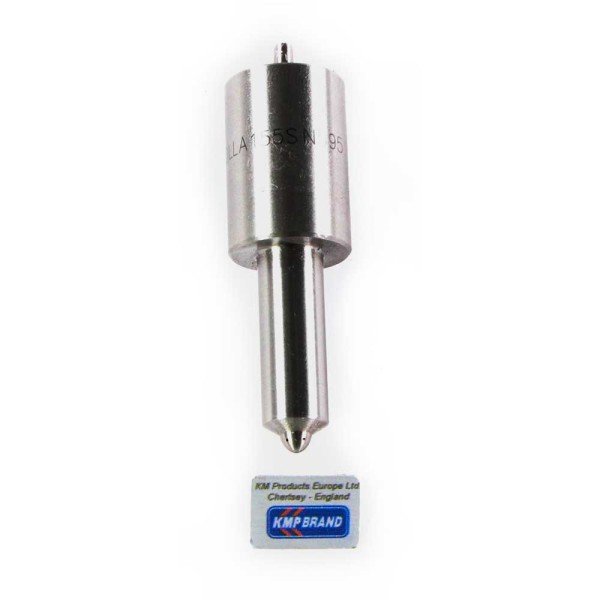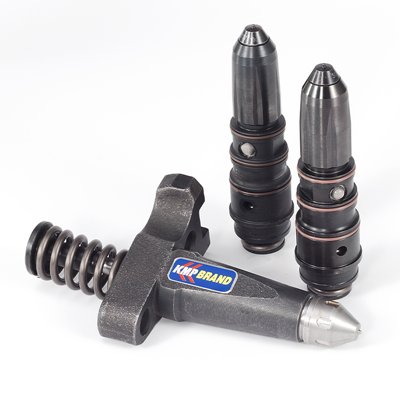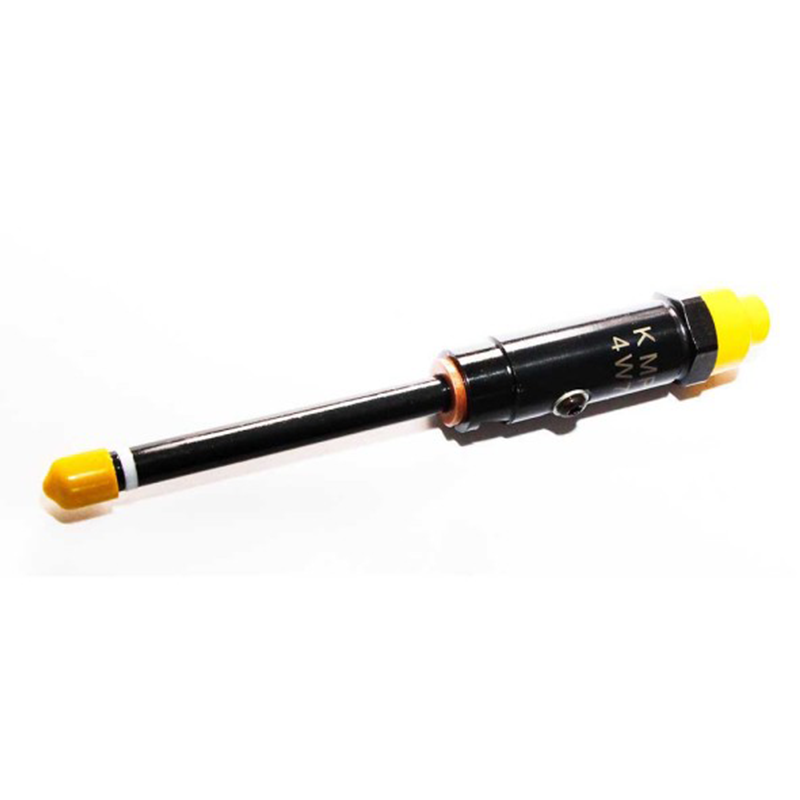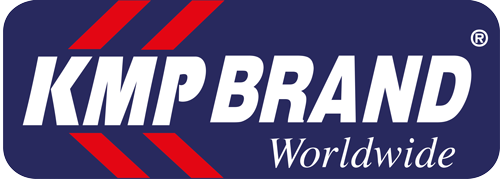KMP Replacement
FUEL INJECTORS & COMPONENTS
KMP Brand® Fuel Injectors & Fuel Injection components
Caterpillar®: D333, D342, D343, D353, 3066, 3114, 3116, 3204, 3208, 3304, 3306, 3406, 3412, 3508, 3512, 3516
Komatsu®: 95, 102, 105, 108, 110, 114, 125, 130, 140, 155, 170 engines
Cummins®: NH220, 855, B series, C series, M11, N14, KT series, L10
Detroit Diesel®: Injector models C, N, 92 and Series 60



What is a Fuel Injector?
How Do Fuel Injectors Work?
The operation of a fuel injector involves several steps:
- Fuel Delivery: The fuel is pumped from the fuel tank to the fuel injectors through the fuel lines. In the case of diesel engines, the fuel is pressurised to a high pressure before reaching the injectors.
- Injection Timing: The cylinder block contains channels and passages for the circulation of engine coolant, which helps regulate the temperature of the engine. These passages prevent overheating and maintain optimal operating conditions.
- Crankshaft Support: The crankshaft, responsible for converting reciprocating motion into rotational motion, is mounted in the lower section of the cylinder block. The main bearings provide support for the crankshaft, ensuring it rotates smoothly and precisely.
- Mounting Points: The cylinder block provides attachment points for various engine components, such as the cylinder head, intake and exhaust manifolds, and other auxiliary systems.
- Engine Lubrication: The oil passages integrated into the cylinder block distribute engine oil to critical engine parts, including the crankshaft, connecting rods, and camshaft, to ensure proper lubrication.
symptoms of Failing Fuel Injectors
Failing fuel injectors can lead to a range of issues, affecting engine performance, fuel efficiency, and emissions. Here are some common symptoms of failing fuel injectors:
- Poor Engine Performance: One of the most noticeable signs of a failing fuel injector is a decrease in engine performance. This can manifest as sluggish acceleration, reduced power output, or rough idling. When a fuel injector fails to deliver the correct amount of fuel or sprays it unevenly, it disrupts the combustion process, resulting in poor engine performance.
- Decreased Fuel Efficiency: Faulty fuel injectors can cause fuel to be wasted or not properly utilised during combustion, leading to decreased fuel efficiency. This can result in higher fuel consumption and increased operating costs over time.
- Engine Misfires: A failing fuel injector may not deliver fuel consistently or evenly, leading to engine misfires. Misfires occur when the air-fuel mixture in the combustion chamber fails to ignite properly, causing a momentary loss of power and potentially damaging the engine over time.
- Rough Idling: If a fuel injector is clogged or not functioning correctly, it can cause the engine to idle roughly or unevenly. This is often accompanied by noticeable vibrations or fluctuations in engine speed when the vehicle is stationary.
- Increased Emissions: When fuel isn’t burned efficiently due to a failing injector, it can lead to increased emissions of pollutants such as hydrocarbons (HC), carbon monoxide (CO), and nitrogen oxides (NOx). This not only contributes to environmental pollution but can also result in a failed emissions test for vehicles subject to regulatory standards.
- Fuel Leaks: In some cases, a failing fuel injector may develop leaks, either at the nozzle or within the injector itself. This can result in fuel odour, visible fuel leakage, or puddles of fuel forming under the vehicle. Fuel leaks not only waste fuel but can also pose a fire hazard if the leaked fuel comes into contact with hot engine components.
- Check Engine Light: Modern machines are equipped with onboard diagnostics systems that monitor various engine parameters, including fuel injector performance. If the ECU detects a problem with a fuel injector, it may trigger the check engine light (CEL) on the dashboard to alert the driver to the issue.
Fuel Injector Replacement
Fuel injectors are critical components in the operation of industrial and agricultural engines, ensuring precise fuel delivery for optimal engine performance and efficiency. Understanding how fuel injectors work and recognising the symptoms of failing injectors is essential for maintaining engine health and preventing costly repairs. By addressing fuel injector issues promptly, engine operators can maximise fuel efficiency, reduce emissions, and prolong the lifespan of their equipment.
KMP Brand® supply a wide range of quality, replacement fuel injectors and fuel injection components manufactured to high specification suitable for Case IH ®, Caterpillar®, Cummins®, Detroit Diesel®, Fiat®, Ford New Holland®, Iveco®, JCB®, John Deere®, Komatsu®, Massey Ferguson®, NEF® and Perkins® engines.
